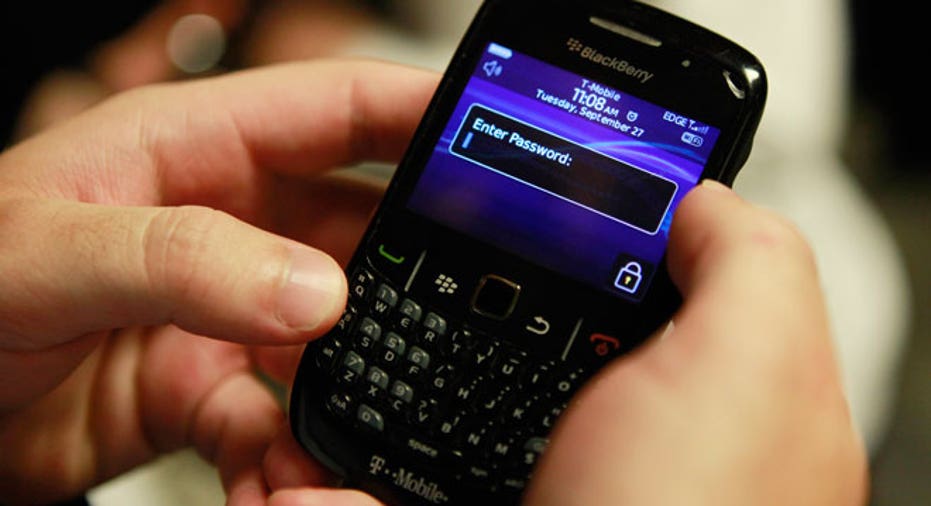Put the BlackBerry Down: Why You Shouldn't Work 24/7

Technology advancements have made employees more efficient, but it also blurred the lines between work and personal life—which can be counterproductive to career advancement and productivity levels.
Smartphones have made the office mobile, and has workers checking emails before and after hours and even during weekends. The convenience of being able to communicate outside the office has blurred the definition of work hours as many employees feel obligated to answer late-night emails.
According to CareerBuilder, 17% of 5,200 workers felt like the workday never ends because technology provides access to the office while 30% of more than 2,300 workers contact the office on vacation. About 37% of hiring managers expect employees to check in especially when working on a big project or major issue impacting the company.
It’s a part of life to have email and phones at all times, says Brent Rasmussen, CareerBuilder’s president of North America. “The way we’re connected now, it’s inevitable that it’s going to be harder to break away from work.”
Experts recommend taking realistic steps to balance your time based on your working style, job responsibilities and personal and professional priorities. “You should be able to take control of your schedule by how much you’re willing to give based on setting boundaries and sticking to them,” suggests Scott Dobroski, community expert at Glassdoor.
Work-life balance can help you feel refreshed and more productive, and here are expert tips for finding the appropriate balance.
Anticipate your boss’s needs. “Oftentimes, the cadence of your work will reflect your boss,” says Nicole Williams, LinkedIn’s career expert. It’s best to find a boss with a similar work style but not always possible. “Be very preemptive,” says Williams. If you know your boss will get up in the middle of the night and start thinking about the next day’s meetings, send over the necessary work ahead of time.
Wait until morning to answer. Sometimes delaying your response can be a great strategy to find balance and allows more time to gather information and research, says Rasmussen. “The work life choices people make are important—for most of us, we’re not in a position where we’re saving lives.”
Designate work time for outside the office. Dobroski suggests limiting how often you check work emails after hours to first thing in the morning and once before you go to bed.
“If you are at dinner with friends or your child’s play, don’t check [your email],” says Dobroski. By not turning off your device, you could potentially ruin the non-work activity for yourself and those around you.
The new iPhone iIO6 has a “Do not disturb” feature that allows you to turn notifications on and off and screen calls. “It lets you set who can and can’t get through to you,” says Dobroski. This way, emails and calls received after hours won’t interrupt your activities.
Set expectations and boundaries. “No job is one size fits all,” says Dobroski. Ask your boss about his or her expectations for after-work correspondences. “If your boss is sending emails 24-7, [make sure to know if] you are expected to respond or are they just getting it off their plate,” says Dobroski.
Since your boss’s midnight emails may not be pressing, ask if there’s a way for your boss to tag subject lines to help you differentiate between ‘urgent’ and ‘something to chat about tomorrow’, recommends Amanda Augustine, job search expert at TheLadders.
If you’re starting a new job or working with a new team or manager, find out the expectations. There will always be projects requiring late nights and long hours, but Augustine suggests instituting parameters to avoid unnecessary work. “Know the difference between what’s urgent and what can wait.”
Lead by example. Leaders in organizations who send emails and make calls after hours aren’t setting a good example for their staff, says Rasmussen. “Set an example for your team that business is important but you should have the ability to check out of your job so you can have a decent work-life balance.”
Keep one calenda r. “Record your personal and professional commitments on one calendar so you don’t overbook,” says Rasmussen. Just like you schedule business meetings, also schedule activities with your friends, significant other and children. If you don’t want your coworkers to know about these events, mark them as “Private”.
Accept the good with the bad. “Even though our job may require you to be on call, remember the tradeoffs and be thankful,” says Dobroski. Every once in a while, you may be able to run errands during office hours or leave early because you’re able to answer emails when you’re not in the office.



















